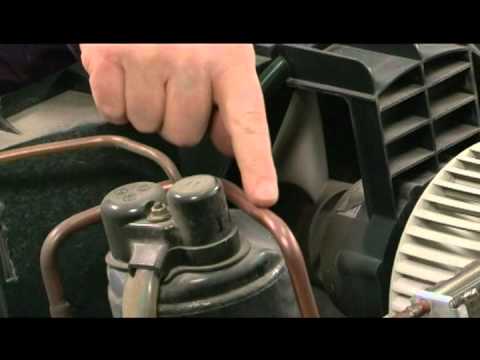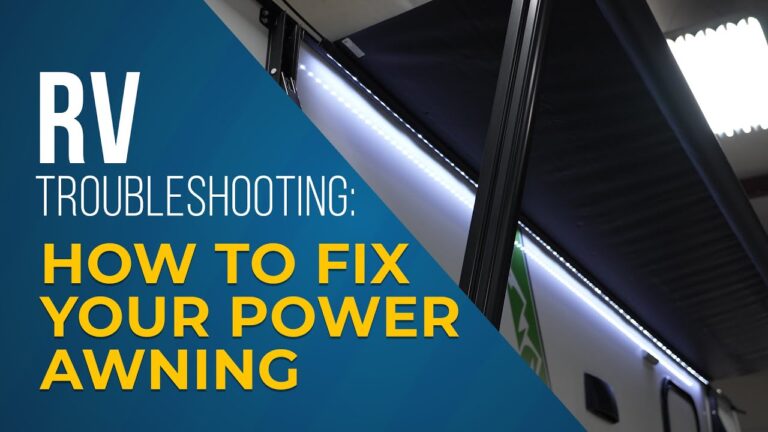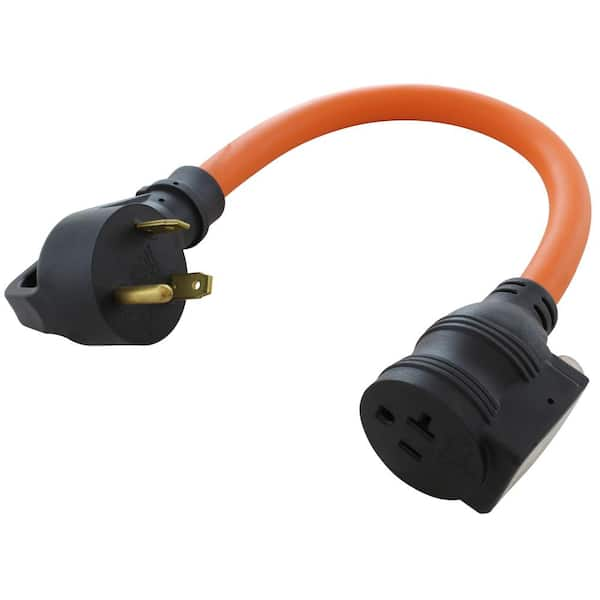Propane Vs Electric Fridge
Propane fridges are more efficient than electric fridges, making them a better choice for off-grid living or camping. Propane fridges and electric fridges are two different types of refrigeration systems with their own advantages and disadvantages.
Deciding between the two depends on various factors such as cost, efficiency, convenience, and environmental impact. We will explore the differences between propane fridges and electric fridges to help you make an informed decision. Propane fridges, also known as gas refrigerators, use propane as a fuel source, making them suitable for off-grid living or camping where electricity may be limited or unavailable.
On the other hand, electric fridges rely on standard electrical power and are commonly found in households. Furthermore, propane fridges are generally more energy-efficient and provide better cooling performance than electric fridges. However, electric fridges are often more convenient to use and require less maintenance. Let’s delve deeper into the pros and cons of each option to determine which is the right choice for you.
*introduction To Propane And Electric Fridges*
Propane and electric fridges offer distinct advantages. Propane fridges are ideal for off-grid living, while electric fridges are energy-efficient and convenient for everyday use. Explore the pros and cons to make an informed choice.
| Introduction to Propane and Electric Fridges |
|---|
| Propane and electric fridges are two common options for keeping food and beverages cold in various settings. Propane fridges have been used for decades and are commonly found in remote cabins, RVs, and off-grid homes. They work by utilizing propane gas to cool the interior and keep the contents cold. These fridges are known for their efficiency, reliability, and ability to operate without electricity. They are often chosen for their portability and independence from power sources. Electric fridges, on the other hand, are powered by electricity and are commonly found in residential kitchens, offices, and commercial establishments. These fridges use an electric compressor to cool down the interior and keep the contents cold. Electric fridges often offer more advanced features, such as temperature control settings and automatic defrosting. However, they require a stable source of electricity to function properly. In conclusion, both propane and electric fridges have their own advantages and disadvantages. The choice between the two depends on the specific needs and circumstances of the user. It is important to consider factors like portability, accessibility to power sources, and maintenance requirements when deciding which type of fridge to invest in. |
*energy Efficiency And Cost*
When comparing the energy consumption of propane and electric fridges, there are several factors that can affect the cost of operation. Let’s take a closer look at them:
| Factors | Propane Fridge | Electric Fridge |
|---|---|---|
| Initial Cost | Propane fridges tend to have a higher initial cost due to the need for gas lines and tanks. | Electric fridges have a lower initial cost compared to propane fridges. |
| Energy Efficiency | Propane fridges are generally more energy-efficient, as they do not rely on electricity and are not affected by power outages. They may consume less energy in the long run. | Electric fridges may consume more energy compared to propane fridges, especially during hot summer months. |
| Operating Cost | The cost of propane can vary depending on location and market conditions. However, propane fridges tend to have lower operating costs in areas with lower gas prices. | The cost of electricity can vary depending on the region and utility rates. In areas with low electricity costs, electric fridges may have lower operating costs. |
| Availability | Propane may not be readily available in all areas, making it difficult to find fuel for propane fridges. | Electricity is widely available and accessible, making electric fridges convenient for most households. |
In conclusion, when considering the energy efficiency and cost of propane and electric fridges, it is important to take into account the initial cost, energy efficiency, operating cost, and availability of fuel. The decision between the two will ultimately depend on individual preferences, location, and specific circumstances.
*performance And Temperature Control*
Propane fridges offer excellent performance and temperature control compared to electric fridges, ensuring your food stays fresh and cold in any environment.Performance and Temperature Control Propane and electric fridges have different cooling capabilities. Propane fridges use gas as their primary source of power, while electric fridges rely on electricity. Both types are designed to maintain optimal temperature and preserve food effectively. Propane fridges offer excellent temperature control, allowing users to adjust the cooling level according to their needs. With precise temperature control, you can ensure that your food stays fresh and prevent it from spoiling. Electric fridges, on the other hand, also provide accurate temperature control, but the degree of control may vary depending on the model. When it comes to performance, propane fridges are known for their ability to cool quickly, making them a great choice for camping or off-grid living. However, electric fridges are more widely available and often come with advanced features like digital displays and automated temperature settings. Ultimately, the choice between propane and electric fridges depends on your specific needs and preferences. Consider factors such as portability, availability of power sources, and desired features to make an informed decision.
*portability And Installation*
Portability is an important factor to consider when choosing between a propane and electric fridge. Propane fridges are generally more portable as they do not require a constant source of electricity. This makes them suitable for off-grid or camping situations where electricity may not be readily available. On the other hand, electric fridges are dependent on electricity and need to be plugged in for operation. This limits their portability, making them more suitable for permanent installations such as in homes or RV parks.
The installation process for propane and electric fridges also differs. Propane fridges require a propane supply and ventilation to prevent the build-up of potentially harmful gases. This means the installation process can be more complex, involving setting up and connecting gas lines. Electric fridges, on the other hand, require a power source and can be installed easily by plugging them into an electrical outlet. This makes the installation process simpler and more convenient for electric fridges.
Portability Overview:
| Propane Fridge | Electric Fridge |
|---|---|
| More portable | Less portable |
| Suitable for off-grid or camping | Suitable for permanent installations |
Installation Process Overview:
| Propane Fridge | Electric Fridge |
|---|---|
| Requires gas lines and ventilation | Plug and play installation |
| Complex installation process | Simple installation process |
*environmental Impact*
Assessing the environmental impact of propane and electric fridges involves analyzing the greenhouse gas emissions generated by both types of refrigerators. Propane fridges use propane gas as their primary source of energy, while electric fridges rely on the electricity grid. When it comes to greenhouse gas emissions, propane fridges tend to release fewer emissions compared to their electric counterparts. This is because the production and generation of electricity often involve burning fossil fuels, which contributes to higher emissions. In contrast, propane is a cleaner-burning fuel that emits lower levels of greenhouse gases. However, it is important to note that the overall environmental impact of a fridge goes beyond just greenhouse gas emissions. Other factors, such as the production and disposal of the appliance, also need to be considered to fully assess its environmental footprint.
*reliability And Durability*
Propane and electric fridges both have their pros and cons when it comes to reliability and durability. Evaluating their performance in different conditions can help determine the better option.
Propane fridges are often preferred for off-grid living or camping due to their ability to operate without electricity. They are reliable in remote areas or during power outages. However, they require regular maintenance and can be affected by extreme temperatures.
On the other hand, electric fridges are commonly used in homes and commercial settings. They are generally more durable and have a longer lifespan compared to propane fridges. Electric fridges are not affected by temperature fluctuations but rely solely on electricity.
In conclusion, both propane and electric fridges have their own advantages and disadvantages. Choosing between them depends on factors such as accessibility to power and the expected conditions of use.
*maintenance And Safety*
Propane and electric fridges have different maintenance requirements that need to be considered for their optimal performance and longevity.
Maintenance: Propane fridges generally require more maintenance than electric fridges. Regular inspection and cleaning of propane connections, burner assembly, and flue are necessary to ensure proper operation. Electric fridges, on the other hand, typically require less maintenance, with periodic cleaning of condenser coils being the main task. It is important to follow the manufacturer’s guidelines for both types of fridges to prevent any potential issues.
Safety: Safety is a crucial factor to consider when using propane and electric fridges. Propane fridges require proper ventilation to prevent the accumulation of potentially harmful gas, while electric fridges do not have this concern. However, electric fridges come with their own safety considerations, such as the risk of electrical shocks and the need for proper grounding.
Overall, understanding the maintenance requirements and safety considerations of both propane and electric fridges is essential to make an informed decision about which type of fridge is best suited for your needs.
*availability And Accessibility*
Examining the availability of propane and electric fridges in different regions, it becomes apparent that each type has its own considerations. Propane fridges are widely available in areas that lack electricity infrastructure, making them suitable for off-grid living, camping, and remote locations. These fridges operate using propane gas, which can be easily sourced and stored. On the other hand, electric fridges are more commonly found in urban areas and places with reliable electricity supply. While propane can be accessible in various regions, it may require additional effort and planning to ensure a consistent fuel supply.
Evaluating the accessibility of fuel sources for propane and electric fridges, it’s important to note that propane gas can be obtained from various sources such as refillable propane tanks or from propane delivery services. This allows for flexibility in obtaining the necessary fuel. In contrast, electric fridges rely solely on the availability of electricity, which may not be a concern in areas where power outages are infrequent. However, in regions with unreliable power supply or in situations where electricity is not readily accessible, electric fridges may not be a practical option.

Credit: furrion.com
Frequently Asked Questions For Propane Vs Electric Fridge
Is A Propane Fridge Better Than An Electric Fridge?
Both propane and electric fridges have their advantages. Propane fridges are more energy-efficient and can operate off-grid, making them ideal for RVs or off-grid living. Electric fridges, on the other hand, are easier to install and maintain, and they don’t require refilling propane tanks.
How Does A Propane Fridge Work?
A propane fridge uses a small flame to heat a mixture of ammonia, hydrogen gas, and water. As the mixture evaporates and condenses, it causes the fridge to cool. This process, known as absorption cooling, allows the fridge to function without an electric compressor.
Are Propane Fridges Safe To Use?
Propane fridges are generally safe to use when properly installed and maintained. However, it’s important to ensure proper ventilation to prevent the buildup of carbon monoxide, which can be dangerous. Regular inspections and following safety guidelines can help ensure the safe use of propane fridges.
Conclusion
When considering a fridge for your camping or off-grid needs, it’s important to weigh the options between propane and electric. Both have their advantages and disadvantages. Propane fridges are ideal for remote locations where electricity is limited, while electric fridges offer convenience and affordability.
Ultimately, the choice boils down to your specific requirements and preferences. By carefully considering your needs, you can make an informed decision and enjoy a fridge that perfectly suits your needs while keeping your food fresh and cold.







